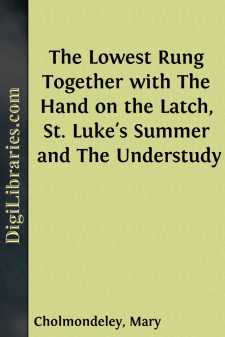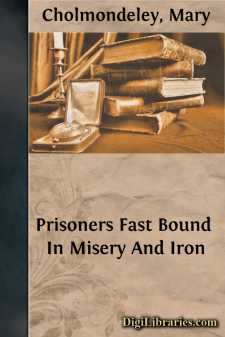Categories
- Antiques & Collectibles 13
- Architecture 36
- Art 48
- Bibles 22
- Biography & Autobiography 813
- Body, Mind & Spirit 142
- Business & Economics 28
- Children's Books 15
- Children's Fiction 12
- Computers 4
- Cooking 94
- Crafts & Hobbies 4
- Drama 346
- Education 46
- Family & Relationships 57
- Fiction 11829
- Games 19
- Gardening 17
- Health & Fitness 34
- History 1377
- House & Home 1
- Humor 147
- Juvenile Fiction 1873
- Juvenile Nonfiction 202
- Language Arts & Disciplines 88
- Law 16
- Literary Collections 686
- Literary Criticism 179
- Mathematics 13
- Medical 41
- Music 40
- Nature 179
- Non-Classifiable 1768
- Performing Arts 7
- Periodicals 1453
- Philosophy 64
- Photography 2
- Poetry 896
- Political Science 203
- Psychology 42
- Reference 154
- Religion 513
- Science 126
- Self-Help 84
- Social Science 81
- Sports & Recreation 34
- Study Aids 3
- Technology & Engineering 59
- Transportation 23
- Travel 463
- True Crime 29
The Danvers Jewels, and Sir Charles Danvers
Categories:
Description:
Excerpt
CHAPTER I.
I was on the point of leaving India and returning to England when he sent for me. At least, to be accurate—and I am always accurate—I was not quite on the point, but nearly, for I was going to start by the mail on the following day. I had been up to Government House to take my leave a few days before, but Sir John had been too ill to see me, or at least he had said he was. And now he was much worse—dying, it seemed, from all accounts; and he had sent down a native servant in the noon-day heat with a note, written in his shaking old hand, begging me to come up as soon as it became cooler. He said he had a commission which he was anxious I should do for him in England.
Of course I went. It was not very convenient, because I had to borrow one of our fellows' traps, as I had sold my own, and none of them had the confidence in my driving which I had myself. I was also obliged to leave the packing of my collection of Malay krises and Indian kookeries to my bearer.
I wondered as I drove along why Sir John had sent for me. Worse, was he? Dying? And without a friend. Poor old man! He had done pretty well in this world, but I was afraid he would not be up to much once he was out of it; and now it seemed he was going. I felt sorry for him. I felt more sorry when I saw him—when the tall, long-faced A.D.C. took me into his room and left us. Yes, Sir John was certainly going. There was no mistake about it. It was written in every line of his drawn fever-worn face, and in his wide fever-lit eyes, and in the clutch of his long yellow hands upon his tussore silk dressing-gown. He looked a very sick bad old man as he lay there on his low couch, placed so as to court the air from without, cooled by its passage through damped grass screens, and to receive the full strength of the punka, pulled by an invisible hand outside.
"You go to England to-morrow?" he asked, sharply.
It was written even in the change of his voice, which was harsh, as of old, but with all the strength gone out of it.
"By to-morrow's mail," I said. I should have liked to say something more—something sympathetic about his being ill and not likely to get better; but he had always treated me discourteously when he was well, and I could not open out all at once now that he was ill.
"Look here, Middleton," he went on; "I am dying, and I know it. I don't suppose you imagined I had sent for you to bid you a last farewell before departing to my long home. I am not in such a hurry to depart as all that, I can tell you; but there is something I want done—that I want you to do for me. I meant to have done it myself, but I am down now, and I must trust somebody. I know better than to trust a clever man. An honest fool—But I am digressing from the case in point. I have never trusted anybody all my life, so you may feel honored. I have a small parcel which I want you to take to England for me. Here it is."
His long lean hands went searching in his dressing-gown, and presently produced an old brown bag, held together at the neck by a string.
"See here!" he said; and he pushed the glasses and papers aside from the table near him and undid the string. Then he craned forward to look about him, laying a spasmodic clutch on the bag. "I'm watched! I know I'm watched!" he said in a whisper, his pale eyes turning slowly in their sockets. "I shall be killed for them if I keep them much longer, and I won't be hurried into my grave. I'll take my own time."
"There is no one here," I said, "and no one in sight except Cathcart, smoking in the veranda, and I can only see his legs, so he can't see us."
He seemed to recover himself, and laughed. I had never liked his laugh, especially when, as had often happened, it had been directed against myself; but I liked it still less now.
"See here!" he repeated, chuckling; and he turned the bag inside out upon the table.
Such jewels I had never seen. They fell like cut flame upon the marble table—green and red and burning white. A large diamond rolled and fell upon the floor. I picked it up and put it back among the confused blaze of precious stones, too much astonished for a moment to speak.
"Beautiful! aren't they?" the old man chuckled, passing his wasted hands over them. "You won't match that necklace in any jeweller's in England. I tore it off an old she-devil of a Rhanee's neck after the Mutiny, and got a bite in the arm for my trouble. But she'll tell no tales. He! he! he! I don't mind saying now how I got them. I am a humble Christian, now I am so near heaven—eh, Middleton? He! he! You don't like to contradict me. Look at those emeralds. The hasp is broken, but it makes a pretty bracelet. I don't think I'll tell you how the hasp got broken—little accident as the lady who wore it gave it to me....





